Blog
CMI 304 Principles of Communication in the Workplace
- March 2, 2023
- Posted by: Scarlett
- Category: CMI Level 3

CMI 304 Principles of Communication in the Workplace is a course that focuses on the fundamental principles and practices of communication in a professional setting. Communication is an essential aspect of workplace success, and understanding its intricacies is critical for any individual seeking to thrive in a professional environment. This course is designed to equip students with the knowledge and skills necessary to effectively communicate with coworkers, supervisors, clients, and customers.
Throughout the course, students will explore the various forms of workplace communication, including verbal, nonverbal, written, and digital. They will learn how to develop and deliver clear and concise messages, how to listen actively and empathetically, and how to navigate communication barriers and conflicts. Additionally, students will examine the role of culture, diversity, and ethics in workplace communication and how to adapt their communication styles to different audiences.
Overall, CMI 304 Principles of Communication in the Workplace is an essential course for anyone seeking to enhance their communication skills and succeed in a professional setting. By mastering the principles of effective communication, students will be better equipped to collaborate, innovate, and lead in any workplace.
Aims of unit
The aim of CMI 304 Principles of Communication in the Workplace is to provide students with a comprehensive understanding of the principles and practices of effective communication in a professional setting. The course aims to equip students with the skills and knowledge necessary to communicate, concisely, and professionally with colleagues, clients, customers, and other stakeholders.
In particular, the course aims to help students develop the ability to create and deliver compelling messages, listen actively and empathetically, and navigate communication barriers and conflicts. Additionally, the course aims to foster an appreciation for the role of culture, diversity, and ethics in workplace communication and to provide students with the tools to adapt their communication styles to different audiences.
By the end of the course, students should have a strong understanding of the fundamental principles of workplace communication and be able to apply these principles in a variety of professional contexts. Ultimately, the aim of CMI 304 is to help students become effective communicators, collaborators, and leaders in any workplace.
What you’ll learn
In CMI 304 Principles of Communication in the Workplace, students can expect to learn a range of skills and knowledge related to effective communication in a professional setting. Here are some of the key topics that students are likely to cover in the course:
- Verbal communication: Students will learn how to use language effectively to convey their message, including how to structure their speech, use appropriate tone and body language, and adjust their communication style to different audiences.
- Nonverbal communication: Students will explore how body language, facial expressions, and other nonverbal cues impact communication and learn how to use these cues to enhance their message.
- Written communication: Students will learn how to write professional emails, memos, reports, and other workplace documents, including how to structure their writing, use appropriate tone and style, and proofread and edit their work.
- Digital communication: Students will explore the various digital tools and platforms used in the workplace, including email, social media, and video conferencing, and learn how to use these tools effectively and professionally.
- Active listening: Students will learn how to listen actively and empathetically, including how to ask questions, paraphrase, and provide feedback to enhance understanding.
- Conflict resolution: Students will learn how to navigate communication barriers and conflicts in the workplace, including how to identify and address common communication problems, negotiate effectively, and manage difficult conversations.
- Cultural competence: Students will explore the role of culture, diversity, and ethics in workplace communication and learn how to adapt their communication style to different audiences and contexts.
Overall, students will gain a comprehensive understanding of the principles and practices of effective workplace communication and develop the skills necessary to communicate professionally and collaboratively with others.
Learning outcome
By the end of CMI 304 Principles of Communication in the Workplace, students will have achieved the following learning outcomes:
- Identify and differentiate the various channels and types of communication used in the workplace.
- Understand the communication cycle, including the key elements of encoding, decoding, feedback, and noise.
- Develop the ability to plan effective communication for a specific target audience, including how to select the appropriate channel, message, and tone.
- Learn how to measure the effectiveness of communication with a target audience, including how to gather feedback and analyze results to improve future communication efforts.
Overall, students will have a strong grasp of the principles and practices of workplace communication and be able to apply this knowledge to plan and deliver effective communication strategies in a range of professional contexts.
How can we help?
CMI Assignment Help is a valuable resource that can assist students in completing their CMI 304 Principles of Communication in the Workplace assignments. This service provides students with access to expert writers who have a strong understanding of the course material and can provide customized assistance with specific assignments or coursework.
By working with a CMI assignment help service, students can benefit in several ways. For example, they can receive guidance on how to structure their assignments, develop effective arguments, and cite sources correctly. Additionally, students can get feedback on their work from experienced professionals, helping them to identify areas for improvement and refine their writing skills.
Another benefit of working with a CMI assignment help service is that students can save time and reduce stress. Assignments can be time-consuming and challenging, and working with a professional can help students to manage their workload more effectively and meet deadlines with confidence.
Overall, CMI Assignment Help can be a valuable resource for students in CMI 304 and other related courses, providing personalized support and guidance to help them succeed in their coursework and achieve their academic goals.
Resources
- GOV.UK: Equality Act 2010: Guidance
- GOV.UK: Data Protection Act
- GOV.UK: Communications Act 2003
- Digital Economy Bill, 2016
- Institute of Internal Communication
Related Articles:
Why Choose Us?
- GPT Zero
- 100% Non-plagiarised Papers
- Dedicated human resource writers
- 24/7 /365 Service Available
- Affordable Prices
- Money-back and Privacy guarantees
- Unlimited Amendments upon request
- Satisfaction guarantee
